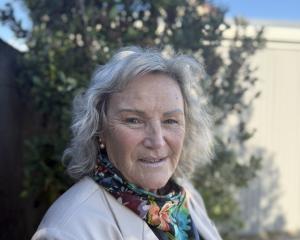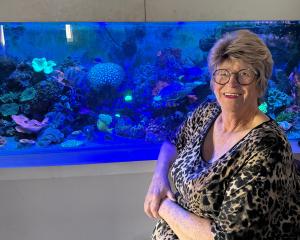While the mayoralty elections around Otago represent, on the whole, status quo results, the same cannot be said for the Dunedin City Council.
Otago's largest council is likely to be in for intriguing times on account of the number of fresh faces and because of the mix of backgrounds and outlooks.
Several of the old guard stood down this election. Neil Collins, Syd Brown, Colin Weatherall, Bill Acklin and Fliss Butcher did not seek re-election. Add in unsuccessful candidates Paul Hudson and Teresa Stevenson - with scores of years' experience between them - and that makes seven new councillors out of 14.
Mayor Dave Cull cleaned up his nearest rivals Hilary Calvert and Lee Vandervis in the race for the chains, but will at times have his work cut out seeking the consensus that suits his style.
The two aforementioned have campaigned strongly, and neither thinks conventionally nor is afraid to do battle. It is hard to see them becoming inculcated with the views of the mayor or the council bureaucracy, as Cr Vandervis has already proved.
It is interesting, too, that such polarising candidates do well under STV voting, with both well and truly garnering enough support to be elected on first preferences.
It seems also that voters, although wanting neither Ms Calvert nor Cr Vandervis as mayor, do not desire a line-up of yes women and men. They want council strategies, spending and priorities to be questioned.
It is no surprise voters injected a green element to the council. Aaron Hawkins, standing specifically as a Green, made it this time after trying unsuccessfully three years ago. He will find general ideological support from the popular Jinty MacTavish. And Neville Peat, a former deputy chairman of the Otago Regional Council, possesses strong green credentials.
Just to spice up debates about cycleways and preparedness for climate change are councillors who appear to come from other persuasions. Mike Lord, in Mosgiel-Taieri (one of four elected officials with a farming background on the ''city'' council), has made his views clear today.
Doug Hall will be watched with interest, especially because of the deep dispute with the council over the Frederick St and Anzac Ave intersection with his yard. Andrew Whiley, while business friendly, could at least initially, be hard to pick.
David Benson-Pope in the late 1980s and into the 1990s was vigorous and questioning. Will he still show that energy and purpose?
That leaves John Bezett, who has been on the council for many years, and Chris Staynes from the central ward, Andrew Noone (Waikouaiti-Coast) and Kate Wilson (Mosgiel Taieri).
They and the mayor and the other sitting councillor, Richard Thomson, could well provide moderating influences. The elections again show the importance of profile, notably in a large city ward where intimate knowledge of councillors among electors is less likely.
Mr Benson-Pope and Ms Calvert are former MPs, with Mr Benson-Pope a one-time Labour Cabinet minister. Four of the successful candidates, including Ms Calvert, had the advantage of the extra exposure as mayoral aspirants and Mr Hall - who stood unsuccessfully for council on five previous occasions - has been in the news.
The idea of the Greater Dunedin tag representing a policy platform was clearly inaccurate given the potential contrast between members like Cr MacTavish and Mr Lord. Those behind the group will be disappointed they could not carry at least one or two more candidates through in the central ward.
In the Clutha mayoralty, passionate Bryan Cadogan crushed a capable rival, while the Waitaki voters went for the business and community experience of Gary Kircher ahead of Jim Hopkins.
Tony Lepper, in Central Otago, and Vanessa van Uden, in Queenstown-Lakes, made no race of their mayoralty contests, although the voters of the Wanaka ward were not afraid to ditch their long-time representatives Leigh Overton and Jude Battson.
Meanwhile, the people of Dunedin can look forward to lively debates and thorough examination of policies.
They have, generally, eschewed non-contentious candidates for councillors with a variety of views.











